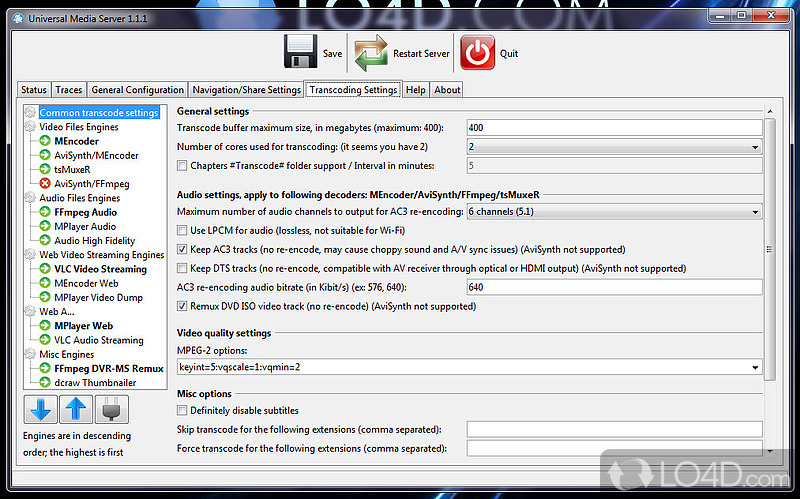

Sudo apt-get install w3m -y -force-yes > /dev/null 2>&1 Sudo apt-get install mediainfo -y -force-yes > /dev/null 2>&1 Sudo apt-get install vlc -y -force-yes > /dev/null 2>&1 Sudo apt-get install mplayer -y -force-yes > /dev/null 2>&1 Sudo apt-get install ffmpeg -y -force-yes > /dev/null 2>&1 Sudo apt-get install mencoder -y -force-yes > /dev/null 2>&1 Sudo apt-get install ttf-ubuntu-title -y -force-yes > /dev/null 2>&1 Sudo apt-get install ttf-ubuntu-font-family -y -force-yes > /dev/null 2>&1 5.Sudo apt-get install dialog -y -force-yes > /dev/null 2>&1ĭialog -title 'Aguarde' -infobox '\nInstalling the dependencies UniversalMediaServer.' 0 0 Level: User, variable M2, value: %M2_HOME%\bin.Level: User, variable M2_HOME, value: Maven extract location.Level: System, variable: JAVA_HOME, value: JDK install location.

Set environment variables WindowsĬreate new variables or append the value if the variable already exists: The result will be built in the "target" directory:įirst all required software has to be installed: 1. Where PACKAGENAME is the name of the target operating system: windows, macos, macos-arm, macos-pre1015 or linux-*, where * is the architecture one of: x86, x86_64, arm64, armel, or armhf Git clone git:///universalmediaserver/universalmediaserver.git If all required software packages are installed, the following commands willĭownload the latest sources and build UMS: Install all required software and how to build UMS for each operating system. Read the Full instructions section for a complete explanation of how to The Java JDK 17 (the JRE is not enough).The following software packages are required: This document describes how to build Universal Media Server from the source files. The latest release of Universal Media Server can be downloaded from:


 0 kommentar(er)
0 kommentar(er)
